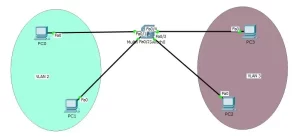Introduction: The Universal Language of Network Engineering
In a world where enterprises operate multi-vendor network environments, the ability to navigate diverse switch configurations is no longer a niche skill—it’s a career-defining competency. From Huawei’s dominance in Asian markets to Cisco’s global stronghold, network engineers must fluidly transition between platforms to optimize performance and troubleshoot issues. This guide demystifies the core command-line interfaces (CLIs) of four industry giants—Huawei, H3C, Ruijie, and Cisco—equipping professionals with the cross-platform fluency demanded by today’s hybrid infrastructures. Whether deploying VLANs in Lagos or troubleshooting QoS in Tokyo, this knowledge bridges technological silos, transforming network teams into agile problem-solvers.
Foundational Commands: The Common Ground
While syntax varies, all switch CLIs share universal objectives:
| Function | Cisco | Huawei | H3C | Ruijie |
|---|---|---|---|---|
| View Configuration | show running-config |
display current-configuration |
display current-configuration |
show running-config |
| Enter Privileged Mode | enable |
super |
super |
enable |
| Save Config | write memory |
save |
save |
write |
| Set Hostname | hostname SW1 |
sysname SW1 |
sysname SW1 |
hostname SW1 |
Pro Tip: Use tab for auto-completion and ? for context help across all platforms—a universal time-saver.
VLAN Configuration: Bridging the Syntax Divide
Scenario: Create VLAN 10 (Marketing) across four switches.
Cisco:
Switch> enable
Switch# configure terminal
Switch(config)# vlan 10
Switch(config-vlan)# name Marketing
Switch(config-vlan)# exit Huawei:
<Huawei> system-view
[Huawei] vlan 10
[Huawei-vlan10] description Marketing
[Huawei-vlan10] quit H3C:
<H3C> system-view
[H3C] vlan 10
[H3C-vlan10] description Marketing
[H3C-vlan10] quit Ruijie:
Ruijie> enable
Ruijie# configure terminal
Ruijie(config)# vlan 10
Ruijie(config-vlan)# name Marketing
Ruijie(config-vlan)# exit Key Insight: H3C’s CLI mirrors Huawei’s structure (both influenced by early Comware development), while Ruijie borrows from Cisco’s IOS conventions.

Security Hardening: Port Security Across Platforms
Objective: Restrict switch port Fa0/1 to two MAC addresses and disable port if violated.
Cisco:
Switch(config)# interface FastEthernet0/1
Switch(config-if)# switchport port-security
Switch(config-if)# switchport port-security maximum 2
Switch(config-if)# switchport port-security violation shutdown Huawei:
[Huawei] interface GigabitEthernet0/0/1
[Huawei-GigabitEthernet0/0/1] port-security enable
[Huawei-GigabitEthernet0/0/1] port-security max-mac-num 2
[Huawei-GigabitEthernet0/0/1] port-security protect-action shutdown H3C:
[H3C] interface GigabitEthernet1/0/1
[H3C-GigabitEthernet1/0/1] port-security max-mac-count 2
[H3C-GigabitEthernet1/0/1] port-security intrusion-mode blockmac Ruijie:
Ruijie(config)# interface GigabitEthernet 0/1
Ruijie(config-if)# port-security max-mac-count 2
Ruijie(config-if)# port-security action shutdown Industry Trend: Huawei and H3C increasingly unify commands across their router-switch portfolios, while Ruijie maintains Cisco-like syntax for easier adoption.
Troubleshooting Toolkit: Universal Diagnostic Commands
- Link Status Verification
- Cisco:
show interfaces status - Huawei:
display interface brief - H3C:
display interface brief - Ruijie:
show interfaces status
- Cisco:
- MAC Address Table
- Cisco:
show mac address-table - Huawei:
display mac-address - H3C:
display mac-address - Ruijie:
show mac-address-table
- Cisco:
- Ping Test
- All:
ping <IP>(Cisco/Ruijie) orping <IP>(Huawei/H3C)
- All:
Real-World Application: A Johannesburg hospital reduced network downtime by 65% after cross-training staff on these universal diagnostics.
Automation Bridges: Scripting for Multi-Vendor Environments
- Python with Paramiko
python
def configure_switch(host, brand): commands = { 'Cisco': ['enable', 'config t', 'vlan 10', 'name IT'], 'Huawei': ['system-view', 'vlan 10', 'description IT'], # ... } with paramiko.SSHClient() as ssh: ssh.connect(host, username='admin', password='secure123') for cmd in commands[brand]: stdin, stdout, stderr = ssh.exec_command(cmd) - Ansible Playbooks
yaml
- name: Configure H3C VLAN hosts: h3c_switches tasks: - name: Create VLAN 20 community.network.h3c_comware_command: commands: - system-view - vlan 20 - description HR
Pro Tip: Use Router-switch.com’s API-driven config generators to export platform-specific scripts from universal templates.

Leave a comment